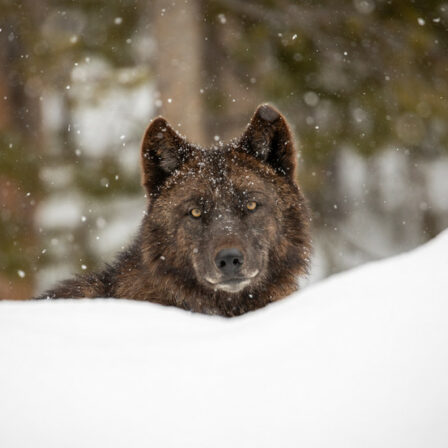Hello, American Bird Conservancy Action Fund Supporters! Members of Congress are busy people, working on numerous pieces of legislation at once. Reco
Hello, American Bird Conservancy Action Fund Supporters!
Members of Congress are busy people, working on numerous pieces of legislation at once. Recognizing their leadership on a particular issue, like bird conservation, is a powerful way of getting a Congress person’s attention and reminding them of why their work is so important. The more members of Congress hear from their constituents about a particular issue, the more likely they are to take action on that issue. Thank yous are especially nice to send since many members hear frequent criticism of their work. Positive reinforcement is motivating and encouraging. Whether you are a member of Congress or not, most of us prefer praise over criticism. Take some time now to thank your members of Congress. ABC Action Fund makes this easy. Visit our Conservation Champions page and click on your member(s) of Congress. ▪ Michigan, thank Sen. Debbie Stabenow, Chair of the Senate Agriculture Committee, for her leadership on the Farm Bill leader.
|
The Farm Bill reauthorization progress is underway. Steve Riley, Director of Farm Bill Policy at the American Bird Conservancy, is working to ensure that Congress includes provisions to benefit birds. Riley has over 30 years of policy experience. Before coming to ABC, Riley was the Assistant Coordinator for the Northern Great Plains Joint Venture at Ducks Unlimited. Riley is also familiar with ABC, working previously as the Conservation Delivery Specialist for the Oaks and Prairies Joint Venture. ABC is lucky to have Riley in his current role where he is applying his ample knowledge of Farm Bill and Department of Agriculture (USDA) programs. Riley developed the Bird Saver platform to advance bird conservation in the Farm Bill. This platform promotes conservation easements, rangeland rest, incentive-based conservation, partner technical assistance, wildlife as a co-equal priority, and the National Seed Strategy. Congress can pass a bird-friendly Farm Bill by supporting these priorities. American Bird Conservancy Action Fund connected with Riley to learn more about this platform, his advocacy approach, and pathways to bipartisan Farm Bill success. The following conversation has been edited for clarity. Can you give us the Bird Saver elevator pitch? Why should bird conservation be included in the Farm Bill? Birds tell an important story about the health of the land. We are all familiar with the “canary in the coal mine” analogy; bird presence and abundance are a window into how plants and insects are doing. The presence or absence of some bird species can tell us if certain plants are doing well or if insects are in a good, natural balance. Too many birds or insects can be a sign of trouble in the ecosystem too. The Farm Bill provides billions of dollars for conserving lands, including wildlife. When habitat is in good condition, the birds native to those places thrive. Considering the wide scope of the Farm Bill, how did you zero in on top priorities? Our top priorities rose up from other priorities by virtue of having the greatest potential to do good for birds as well as the likelihood of our efforts being successful. As we developed our priorities, we consulted with other conservation organizations, vetted our thoughts and gathered new ideas from ABC Staff, and then shared our broadly-conceived ideas with the ABC Board. What are the challenges and advantages of working with both sides of the aisle to advance a bipartisan bill? The Farm Bill is normally one of the most bipartisan pieces of legislation Congress deals with. There are literally things in the Bill that are important in every Congressional district. That said, we do see some aspects of the bill become more difficult when the Houses of Congress are split and from party to party. In this Congress, we expect growth to be austere and bold new changes to be few and far between. Those two things will maximize bipartisanship. Continue reading here. |
Find Us on Facebook!Thank you for reading our newsletter. Before you go, consider giving us a “like” on Facebook to stay updated on the latest bird conservation advocacy news! |
 |
To learn more about our work, visit abcbirdsactionfund.org. |
©2023 American Bird Conservancy Action Fund | 4301 Connecticut Avenue Northwest, Washington, District of Columbia 20008, United States |
|
|




0 comments on “Why Thank Members of Congress?”